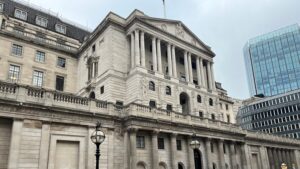Carney gave his most hawkish speech since taking up the role and said the first rate change since 2009 could come sooner than the market expects. The consensus on the likeliest timing for the move before last night’s speech was the first half of next year.
“The latest pricing now expects the rise to come in November or December 2014, which has helped boost sterling against most currencies, but hit the FTSE 100,” said Azad Zangana, European Economist at Schroders. "Carney was at pains to emphasise that there is no pre-set course for the path of interest rates, and that the pace of tightening will be data dependent,” he added.
“Carney is firing a warning shot across the bows,” Rathbones’ Julian Chillingworth said. “There has always been a conflict between the Bank of England’s agenda in terms of tightening monetary policy and the general election cycle but this speech shows Carney wants to emphasise its independence and that the decision will be data driven,” he added.
For investors, the principle concern should be the effect on the pound Carney’s comment and subsequent actions are likely to have, Chillingworth noted.
A rate rise, or merely the increased chance of a near term rate rise, will push up the value of the UK pound versus other currencies and make UK companies’ products and services more expensive to overseas buyers.
The pound has already today risen to a five year high against the dollar of $1.698.
“FTSE 100 companies which have a lot of overseas customers could see their earnings readjusted downward,” Chillingworth said.
With Carney seemingly determined to react to data rather than political agendas, the latest numbers from the ONS add to chances of a rate rise soon. Construction output was this morning revised upwards for the first quarter of the year. The ONS said output expanded 1.5% between January and March, significantly more than its estimate of 0.6%. This will mean an increase in GDP of around 0.1%.
While the rise looks set to come sooner than people thought before last night, it is not likely to be bigger. Carney reiterated that any rises will be ‘gradual and limited’ and it is virtually unanimous among forecasters that it will be just a quarter point when it comes.







